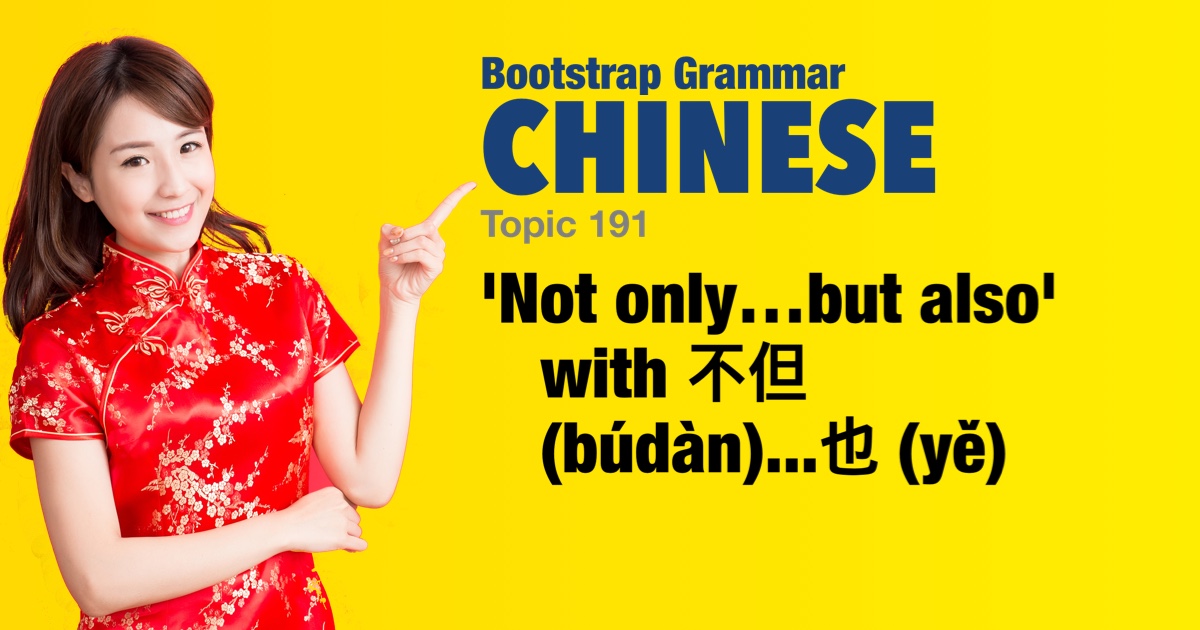Chinese grammar - 'Not only…but also' with 不但 (búdàn)...也 (yě) |
|||
|
|||
This structure is another way to express 'not only...but also' in Chinese, similar to 不但...而且 (búdàn...érqiě), but using 也 (yě) for additional emphasis. The pattern is: 不但 + [clause 1] + 也 + [clause 2]. |
| Examples: | |
|
他不但会说英语,也会说法语。
tā búdàn huì shuō yīngyǔ,#yě huì shuō fáyǔ. Not only can he speak English, but he can also speak French. |
|
|
她不但很聪明,也很勤奋。
tā búdàn hěn cōngmíng,#yě hěn qínfèn. Not only is she smart, but she is also hardworking. |
|
|
我不但喜欢中文,也喜欢历史。
wǒ búdàn xǐhuān zhōngwén,#yě xǐhuān lìshǐ. Not only do I like Chinese, but I also like history.
|
|
|
他们不但看了电影,也吃了晚饭。
tāmen búdàn kàn le diànyǐng,#yě chī le wǎnfàn. Not only did they watch a movie, but they also had dinner. |
|
|
我们不但去了博物馆,也参观了美术馆。
wǒmen búdàn qùle bówùguǎn,#yě cānguān le měishùguǎn. Not only did we go to the museum, but we also visited the art gallery.
|
|
|
他不但会弹钢琴,也会拉小提琴。
tā búdàn huì tán#gāngqín,#yě huì lā xiǎotíqín. Not only can he play the piano, but he can also play the violin. |
|
|
她不但写得好,也说得好。
tā búdàn xiě de hǎo,#yě shuō de hǎo. Not only does she write well, but she also speaks well. |
|
|
你不但要完成作业,也要准备考试。
nǐ búdàn yào wánchéng zuòyè,#yě yào zhǔnbèi kǎoshì. Not only do you need to finish your homework, but you also need to prepare for the exam. |
|
|
他不但喜欢看书,也喜欢写作。
tā búdàn xǐhuān kànshū,#yě xǐhuān xiězuò. Not only does he like reading, but he also likes writing. |
|
|
我们不但学习中文,也学习数学。
wǒmen búdàn xuéxí zhōngwén,#yě xuéxí shùxué. Not only do we study Chinese, but we also study mathematics. |
|
 |
|



